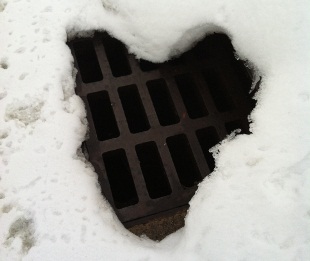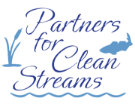 Looks like it is going to be a cold and snowy winter folks. But that doesn’t mean we stop thinking about our water resource and how our actions affect it. Here are some tips for water conservation, awareness, and protection in the winter months.
Looks like it is going to be a cold and snowy winter folks. But that doesn’t mean we stop thinking about our water resource and how our actions affect it. Here are some tips for water conservation, awareness, and protection in the winter months.
- If your pipes are poorly insulated or are on a wall that receives a lot of wind, consider having your faucets slowly drip when you are not home or are sleeping. This helps prevent your pipes from freezing or bursting, something that wastes a lot more water than a slow drip from a faucet. For those of you who do not want to waste any water at all, place a bucket underneath your faucet to collect the water and use it on indoor plants or for pets.
- If a pipe does freeze and burst, be sure to know where the shut-off valve for the water supply is. Usually it can be found in the attic, basement, or crawlspace. Sometimes cities have street valves but this is not always the case. The faster you can shut this valve off in the event of a burst pipe, the less water that is wasted.
- Keep up with car maintenance to reduce leaking of oil, coolant, antifreeze and other hazardous fluids. These can leak fluids onto pavement, which ends up in streams and rivers directly, even on icy roads. A single pint of oil can cause a slick the size of a football field!
- Do you enjoy walking your dog in a winter wonderland? Be sure to bring along a plastic bag to pick up his or her waste! Although it may seem like it will get lost in the snow, pet waste will hang tight until the snow thaws in spring when it will eventually be washed into the nearest waterway. The EPA considers pet waste a non-point source pollutant. Especially relevant to our area is the fact that pet waste provides the nutrients that can promote algal growth in Lake Erie. “Doo” the right thing and pick up after your pup!
